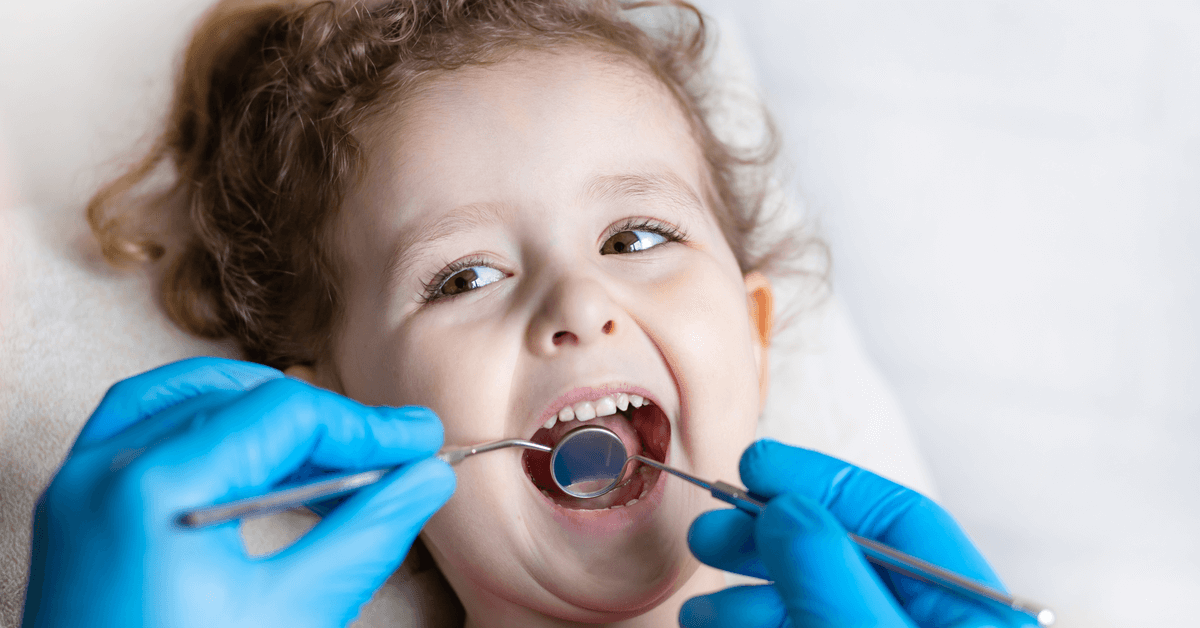Dental health is an issue that everyone of all ages, regardless of big or small, should pay attention to and care about. Especially in children, the importance of dental health is much greater. Contrary to popular belief, the fact that primary teeth will fall out and will be replaced by primary teeth does not mean that milk teeth are unimportant.
The foundation of dental health in advanced ages is laid in childhood, and this requires being more cautious about tooth decay in children. Otherwise, the probability of experiencing health problems that can lead to tooth loss, especially gum diseases and dental caries, is quite high.
So, let’s examine together the factors that cause tooth decay in children and the suggestions that prevent it.
What Are the Symptoms of Tooth Decay in Children?
Caries-causing bacteria in the mouth form the contents of a structure called plaque. Bacteria in plaque convert food residues in the mouth into organic acids. These acids disrupt the structure of the tooth enamel, fill the spaces on the tooth surface and begin to erode the enamel. As a result, a problem called tooth decay occurs.
Below are some of the symptoms that can help in understanding tooth decay.
- White spots may appear on the surface of the tooth (tooth enamel).
- Sensitivity may occur in the teeth.
- Inadvanced caries cases, severe pain may occur during eating and drinking.
- Gaps may occur on the tooth.
- Light brown, dark brown and black pits may occur, respectively.
- There may be an unpleasant bad breath.
Early detection of cavities in children is much more difficult. Because symptoms such as tenderness, blemishes and pain are not complained by the child until they become severe. For this reason, you should pay attention to the causes and precautions of dental caries in your baby.
What Causes Tooth Decay in Children?
Parents may find it surprising that cavities develop in young children. Although good oral care is being done, it is possible to encounter cavities sometimes. Below are the most effective reasons behind this.
- Children’s inability to perform oral care as detailed as adults
- Thinner tooth enamel
- Milk teeth have more organic matter
There can be many different factors that can cause the onset and progression of caries in the teeth. The causes of early tooth decay in children can be listed as follows.
Genetic Predisposition
Some children may have a genetic predisposition to dental caries. If there are individuals with plaque and caries problems in the family, similar problems may occur in the child over time. In addition, reasons such as the natural structure of the tooth, developmental disorders in the tooth and crooked teeth can cause the necessary conditions for the onset of caries.
Dental Plaques
Dental plaques are among the primary causes of caries formation in children as well as adults. Microorganisms and caries-causing bacteria found in the natural oral flora settle in the hard-to-reach places of the teeth that touch each other, cover and erode the tooth enamel. Plaque covering the surface of the teeth is the most obvious source of cavities.
Consumption of Foods Rich in Carbohydrates
One factor alone is not enough for a tooth to decay. When the excessive consumption of sugary foods is added to the presence of plaque, an undesirable acid emerges and this acid damages the teeth. For this reason, sugary, high-calorie and starchy foods should not be consumed during the day when the teeth are not brushed. When such foods are consumed, the amount of acid that occurs increases and the teeth that are exposed to this acid begin to wear.
Not Brushing the Teeth Well
The most basic point to protect dental health in children is to brush the teeth regularly and well. Since hand and small muscle skills are not fully developed, every child may not be able to perform tooth brushing in detail. Many children may even be reluctant to brush their teeth. Not using the brush in a way that it touches every part of the teeth or not brushing at all can increase the formation of plaque and cause tooth decay.

Duration of Food in the Mouth
The longer the food stays in the mouth, the more bacteria will form. Since food residues will remain in the mouth for a longer time after frequent meals, this triggers the formation of caries.
What Problems Does Tooth Decay Cause in Children?
Milk teeth are not the main teeth of children. The first teeth that begin to fall out at the age of 6-7 on average are replaced by permanent teeth over time. Towards the age of 12, all teeth are completed. However, the first tooth decay in children can cause some problems.
- Untimely decayed and lost first teeth may cause false, crooked and damaged permanent teeth to be erupted in the future.
- Defects in jaw development may occur due to defective teeth.
- Tooth loss as a result of early tooth decay can cause speech retardation in children. Hearing and speaking skills may be impaired.
- Nutritional disorders and difficulty in eating may occur due to tooth decay.
- Lack of self-confidence and shyness may occur in children due to the bad appearance of bruises.
What Are the Ways to Prevent Dental Caries in Children?
Paying attention to oral health and paying attention to some tricks help prevent tooth decay in children.
The ways to prevent caries formation can be listed as follows.
- Teeth should be brushed regularly since the first teeth erupt.
- Care should be taken in choosing toothbrushes for children. Brushes with soft and dense bristles suitable for the mouth structure are ideal.
- Correct tooth brushing techniques should be taught to the child. If he can’t brush his teeth on his own yet, you can support him. Make sure that the brush reaches every point.
- In young children, flossing should be started at 2-3 years of age and later.
- Teeth cleaning in babies can be done by gently wiping with the help of a wet cheesecloth or cloth instead of a brush.
- Children’s consumption of foods containing excessive sugar should be limited.
- Even if tooth brushing is not possible after each meal, the mouth should be thoroughly rinsed with water. Making children who do not know how to rinse their mouths drink water after the meal will also be sufficient to remove the food residues.
- Attention should be paid to a balanced diet. It should be ensured that children consume plenty of vegetables, fruits, dairy products and foods containing protein.
- With the use of fissure sealants in children from the age of 6, measures can be taken against decay by covering the gaps on the tooth enamel.
- Dentist controls should be started for children who are over the age of 1, and teeth should be checked by making regular visits to the doctor.
Since tooth decay is a common problem in children, it requires regular follow-up. Mothers and fathers should take care of the oral care of young children themselves, while older children should check their dental health frequently.
Would you like to share your experiences and questions as a comment?
Have a nice and healthy day!







